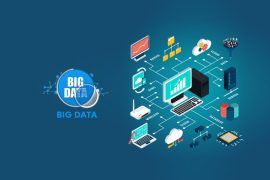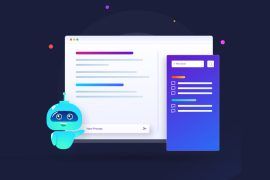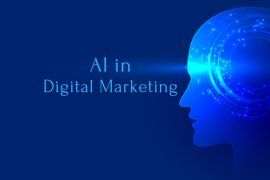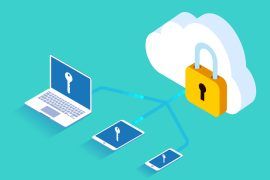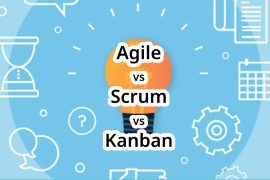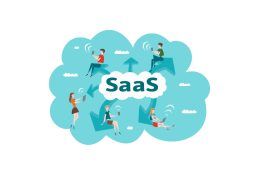AI has become more widespread with its mechanization and analytical features.
AI greatly benefits industries by using Machine Learning, Deep Learning, and Natural Language Processing. AI enables companies to benefit from emerging digital market trends. Multiple artificial Intelligence exists to help individuals, enterprises, and the community.
Table of Contents
What is Artificial Intelligence (AI)?

Artificial Intelligence helps machines to perform human-like jobs. Artificial Intelligence is commonly used as narrow AI (or weak AI) to perform limited tasks like facial recognition or only internet searches or to drive a car. It may beat humans at whatever its specific job is, like playing chess or solving equations, etc. But, for general AI (AGI or strong AI), AGI would outperform humans at nearly every cognitive task.
Despite all the promotion of Artificial Intelligence – robots, self-driving cars, face recognition, etc., still, AI affects our everyday lives for most of the world population. In reality, most of us experience the use of presence AI in some way or the other almost daily. From waking up to scan your smartphone to watching movies on OTT platforms, AI has fast made its way into our routine. Statista researchers point out that the global AI market will grow up to 54 percent yearly. You need to know what exactly AI is. Will it help humanity in the future? Let us discuss the benefits and risks of Artificial Intelligence.
AI equips a computer program with the ability to think and learn independently, and it is a simulation of human intelligence into machines to do things humans would do. There are three critical types of AI based on their abilities – weak AI, Strong AI, and Super AI.
- Weak AI – Focuses on a singular task and is not programmed to perform beyond its limits. Example: Alexa, Siri
- Strong AI can comprehend and memorize any intellectual task that a human being can do. Example: Robotic Surgeries
- Super AI(Still in its nascent stage)- Beats human intelligence and can accomplish any task better than a human
Benefits & Risks of Artificial Intelligence
Artificial Intelligence is a program that is trained to learn and think. It is achievable to view anything as Artificial Intelligence if it is programmed to perform a task humans would do. Let’s begin with the benefits of Artificial Intelligence.
Benefits of Artificial Intelligence
- Reduction in Human Error
One of the most potent advantages of Artificial Intelligence is that it can significantly reduce errors and increase accuracy and precision. AI decisions act on the previously gathered or fed information and a specific set of algorithms. There can be zero errors when accurately programmed.
- Zero Risks
AI robots do some complex work for us has been an added benefit. The use of AI while defusing a bomb, going to space, exploring the deepest parts of oceans, etc., has benefited us. Machines with AI can survive challenging atmospheres and provide authentic results with greater accuracy without wearing out quickly.
- 24×7 Availability
AI can work ceaselessly without vacations and gaps, think much faster than humans, and multitask with exact results. With the help of AI algorithms, these machines can do tedious, repetitive jobs effortlessly.
- Digital Support
Some of the most advanced tech companies engage with users using digital assistants, which eliminates the need for human personnel. Many websites use chatbots to address queries, making it difficult to tell if we are interacting with a human or a chatbot. Businesses are using chatbots or voice bots that can answer all of their client’s questions using AI.
- New Inventions
In every field, AI is the mechanism behind numerous creations and inventions that assist humans in fixing most of the most challenging issues. For instance, with the recent advancements in AI-based technologies, doctors have detected breast cancer in a woman at an earlier stage.
- Unbiased Decisions
AI, devoid of emotions and efficient and rational in its approach, has the edge over humans. A massive advantage of Artificial Intelligence is that it has no, which guarantees more precise decision-making.
- Perform Repetitive Jobs
We use Artificial Intelligence to automate menial tasks and even stop “boring” jobs for people, allowing them to become more creative.
- Daily Applications
We use a variety of apps, including Google Maps, Alexa, Siri, Cortana on Windows, OK Google, taking selfies, making calls, responding to emails, etc., and with AI-based techniques, we can also predict daily weather and the days ahead.
- AI in Risky Situations
An AI robot can perform dangerous tasks for us and surpass many hazardous restrictions humans face. AI can be effectively used in any natural or artificial calamity, whether exploring the sky or going to Mars, defusing a bomb, exploring the deepest regions of the oceans, or mining for coal and oil.
Some risks or disadvantages of Artificial Intelligence are as follows:
Risks or Disadvantages of Artificial Intelligence
- High Costs Involved
The capacity to create a machine that can imitate human Intelligence is not a tiny accomplishment, and AI needs a lot of investment. The cost escalates since AI needs to stay updated and meet the latest requirements.
- No Originality
AI has a significant drawback because it is manufactured and cannot work or think outside the box. AI can learn over time with pre-fed data and past experiences but cannot behave like a human in its approach. An example is the bot Quill which can write Forbes earning reports, and these reports only contain data and facts that were fed to the bot. Although a bot can write an article independently, it lacks the creativity of a human brain.
- Unemployment
A robot is one of AI’s most remarkable inventions, replacing professions and leading to unemployment. Chatbots and robots are examples.
- Make Humans Lazy Over a Period
AI applications automate the majority of tiresome and repetitive tasks. And since we don’t have to do the job, we tend to use our brains less and less. This addiction to AI will cause problems for future generations.
- No Ethics
We cannot expect morals and values from AI apps. The fast advancement of AI has raised several questions about whether AI will ultimately wipe out humanity.
- Emotionless
Computers or other machines have no feelings, and we, being social, function as a team. Team management is vital for reaching objectives. However, we know robots are incomparable when they work efficiently, but whether they can replace humans is still debatable.
- No Improvement
AI cannot improve independently, and humans have to feed data for it to advance. Machines can only complete tasks they are programmed for; if asked to achieve anything else, they often fail to deliver results, which can have adverse effects.
The Ultimate Option
We have learned the advantages and risks or disadvantages of Artificial Intelligence; we are convinced that there is a massive potential for AI to create a better world for us, provided we know our limits. It should not turn out to be Frankenstein’s monster.
Although Artificial Intelligence has disputable pros and cons, its consequence on the global industry is unmistakable. It helps sustainability for businesses, but the world’s decision-makers should be careful not to replace humans with AI completely.

